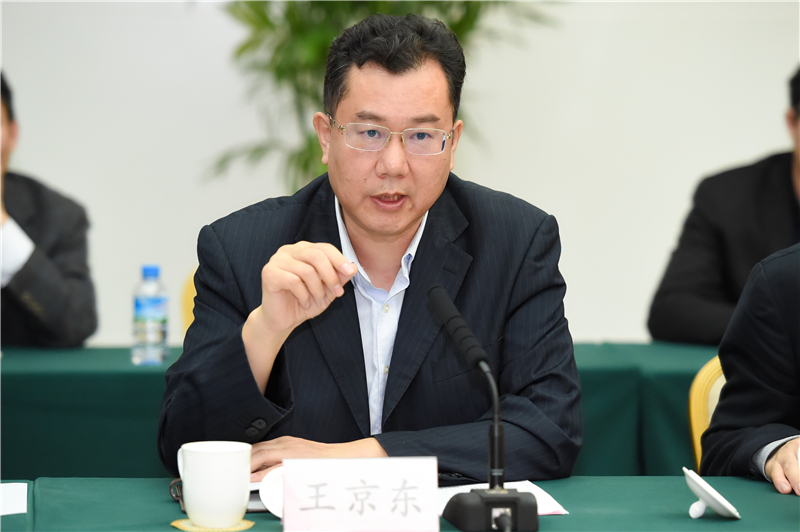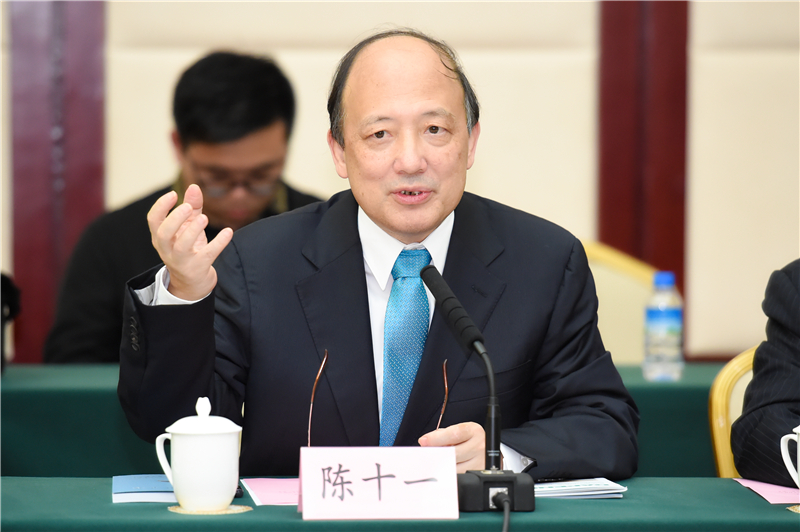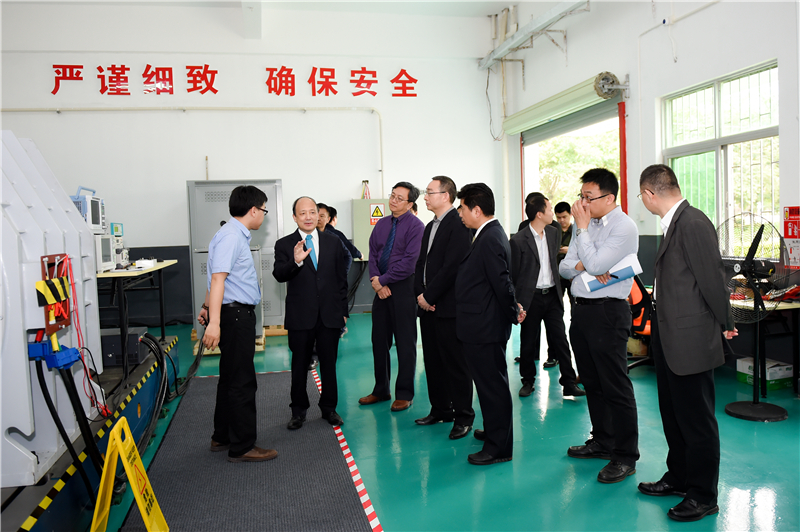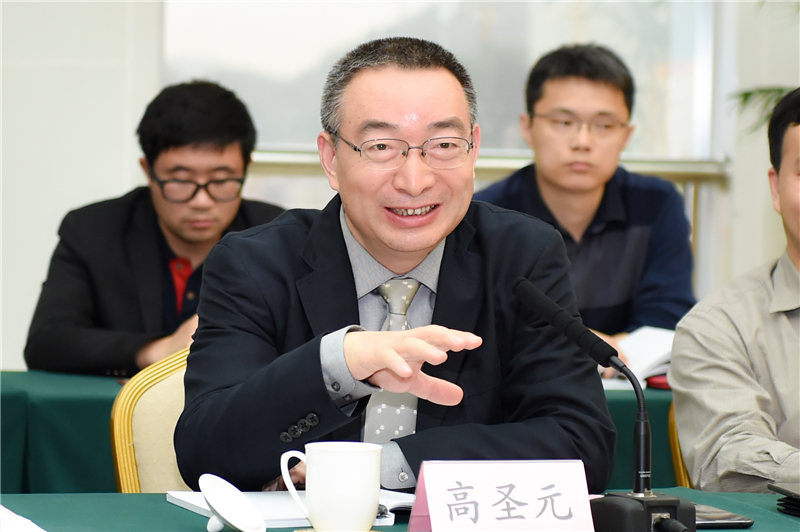On the afternoon of April 5, 2016, the signing ceremony of the strategic framework agreement on technology cooperation between Southern University of Science and Technology of China (SUSTech) and the Administrative Committee of Dapeng New Area, Shenzhen was held. Present were Chen Shiyi, President of SUSTech; Wang Jingdong, Secretary of the Party Work Committee of Dapeng New Area and Gao Shengyuan, Deputy Secretary of the Party Work Committee and Director of the Party and Government Office of Dapeng New Area. Among other attendees were Ye Qin, Chief Financial Officer of SUSTech; Wang Yongjie, Member of the Party Committee, Chairman of the Labor Union and Director of the Party and Government Office of SUSTech; heads of the Office of Research, the Department of Biology and Assets Management Company of SUSTech, as well as heads of functional departments such as the Organization and Personnel Bureau, the Economic Service Bureau and the Public Utilities Bureau of Dapeng New Area. Sun Xinhua, Deputy Secretary of the Party Work Committee and Vice Chairman of the Administrative Committee of Dapeng New Area, presided over the ceremony.
Under this agreement, SUSTech and Dapeng New Area will carry out multi-mode and multi-level cooperation based on respective needs, establish a regional technical innovation system, accelerate the construction of research carriers and the transformation of research findings, and advance the development of strategic emerging industries. Having brought together a multitude of high-level international talents, SUSTech will employ its comprehensive advantage in fields such as biology, ocean, environmental protection and new energy, get involved in the issues of strategic and frontier technologies involved in major projects in the characteristic and advantageous industries of Dapeng New Area, and offer suggestions on strategic research, consultation and evaluation. The area will employ its advantage, support SUSTech in such aspects as talents, research projects and technology achievements according to relevant preferential policies, and provide life logistics guarantee for relevant staff.

Wang welcomed Chen, introducing the general situation, history and culture, environmental advantage and development advantage of Dapeng New Area. Since its establishment, the area has been committed to developing strategic emerging industries innovatively on the premise of effectively protecting the local ecological environment, and exploring a new path for the coordinated development of ecological protection and high-end industries in Shenzhen, said him.

Chen highly recognized the strategic development plan of Dapeng New Area. Good environment outweighs wealth. The area shoulders an important mission as the best reserved land in Shenzhen, and its strategic deployment of developing ecological tourism, oceans and biology accords with the trend of Shenzhen, South China, China and the world. Shenzhen is one of the most energetic and technologically developed cities, just as Stanford University is a source of innovation for the Silicon Valley, SUSTech will provide endless innovation support to Shenzhen in its efforts to become an international innovative city. SUSTech has the features of research, innovation and entrepreneurship. By cementing cooperation with the society and enterprises, through innovation and entrepreneurship, SUSTech will advance enterprise-university-institute cooperation rapidly. The area’s strategic deployment highly accords with SUSTech’s features. In the future, the two sides will carry out in-depth and effective cooperation in fields such as biology and ocean.


Prior to the signing ceremony, Chen and Gao unveiled “SUSTech-Dapeng Laboratory of Advanced Electromagnetic Energy Conversion”.

The laboratory will be led by Jian Linni, Assistant Professor at the Department of Electrical and Electronic Engineering, SUSTech. This is the first cooperative project between SUSTech and Dapeng New Area. There has been a good cooperative project between the two sides, this is the best beginning, and the area will spare no efforts to further the cooperation in the future, said Gao.
Proofread By
Photo By